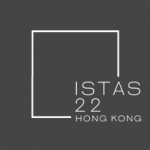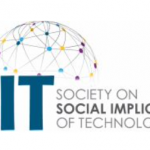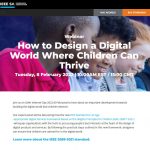VIRTUAL CONFERENCE – Hong Kong, November 10-12, 2022 Conference Theme: “Digital and Societal Transformations” – Conference website: https://www.istas22.org



VIRTUAL CONFERENCE – Hong Kong, November 10-12, 2022 Conference Theme: “Digital and Societal Transformations” – Conference website: https://www.istas22.org

The book documents Limbaugh’s formative role in turning an old technology into an instrument of power that transformed the Republican Party and political discourse in the United States. The talk-radio host proved to be a success as both a propagandist and a ratings builder. Station owners were quick to join his syndicated network and to hire personalities who combined Limbaugh’s smooth delivery, ability to empathize with his audience, biting humor, and relentless attack on all things liberal—real or imagined. Profit mattered but winning the “culture war” counted for as much if not more than Rosenwald cares to consider.

Jeffrey (Jeff) Robbins, a dedicated SSIT member, author, and ISTAS presenter for over forty years, died April 18, 2022. “He added so much to SSIT over many years, with much humor and good will.”

When faced with an ethical problem such as a conflict of interest in which codes of ethics or available ethical problem-solving methods cannot help us decide upon the moral course of action to take. A method claimed to be helpful in such situations is The New York Times Test.

Emerging social contexts add new requirements to the knowledge that successful roboticists need. Much of this additional knowledge comes from the social sciences and humanities.

SSIT is seeking candidates for three Board of Governors (BoG) Members-at-Large (2023-2025).

ISTAS is a multi/inter/trans‐disciplinary forum for engineers, policy makers, entrepreneurs, philosophers, researchers, social scientists, technologists, and polymaths to collaborate, exchange experiences, and discuss the social implications of technology.

By failing to attend to the source, disinformation can be stored along with information, making it difficult to distinguish the good penny from the bad penny.

SSIT members have a history of getting into “good trouble” as they encourage IEEE toward more humanistic stances on ethics, transparency, sustainability, and global equity.

Functional democratic governance has five fundamental preconditions: civic dignity, confluent values, epistemic diversity, accessible education, and legitimate consent.

At their March 8, 2022, Board of Governors meeting, The IEEE Society on Social Implications of Technology (SSIT) unanimously passed a motion approving the following statement: “The IEEE Society on Social Implications of Technology actively supports any IEEE initiative that helps the Ukrainian refugees.”

How can tech organizations of whatever size and industry build more ethical systems? IEEE 7000™ aims to provide organizations with “ethical specs.”

IEEE SSIT might better fit the dictionary’s secondary definition of community, by having a sense of fellowship because we share common goals. If so, what are those goals?

This special issue published in cooperation with IEEE Transactions on Technology and Society (December 2021) is dedicated to examining the governance of artificial intelligence (AI) through soft law. These programs are characterized by the creation of substantive expectations that are not directly enforced by government.

IEEE 2089™-2021, Standard for an Age-Appropriate Digital Services Framework Based on the 5Rights Principles for Children is the first in a family of standards that establishes a set of processes that helps enable organizations to make their services age-appropriate.

If it were possible to formulate laws involving vague predicates and adjudicate them, what would be the implications of such minimalist formulations for soft laws and even for “hard” laws? The possible implications are threefold: 1) does possibility imply desirability; 2) does possibility imply infallibility; and 3) does possibility imply accountability? The answer advanced here, to all three questions, is “no.”

The negative effects of technological innovations can be foreseen, and more importantly, mitigated through more intentional and skillful engineering. Systematic efforts to address these impacts remain peripheral to the engineering profession. The Canada-based Engineering Change Laboratory has identified a set of behaviors that take a value sensitive approach to the practice and culture of engineering.

The promise of 4IR is overblown and its perils are underappreciated. There are compelling reasons to reject—and even actively oppose—the 4IR narrative.

Although much research has been devoted to the effects of autonomous vehicles (AVs) on urban areas, little work has been dedicated to the potential impacts of AVs in rural areas, especially related to feasibility and accessibility [1]. How will automated vehicles impact rural communities?

Lethal autonomous weapon systems have the potential to radically transform warfare. Can open source technology help regulate their development?